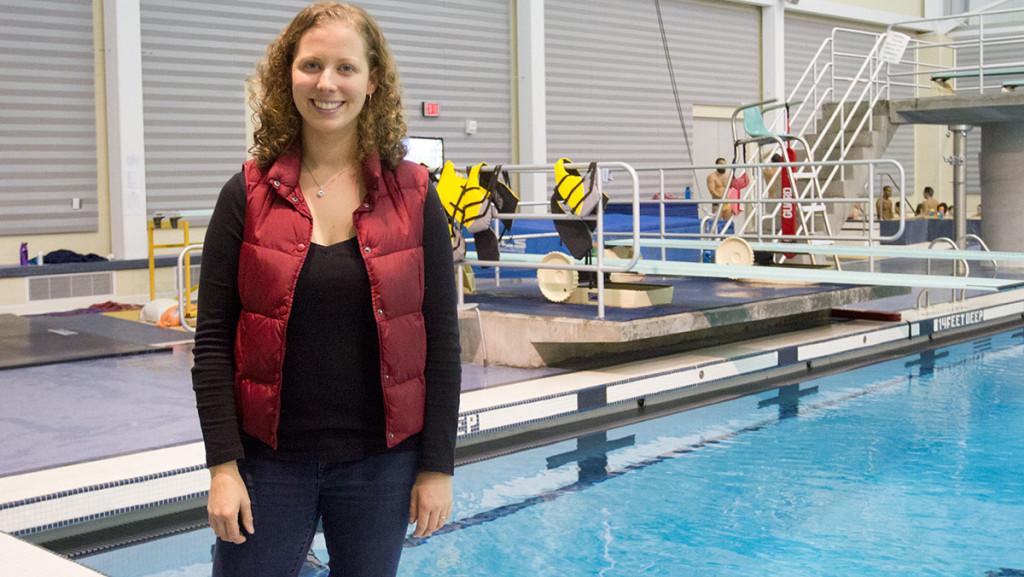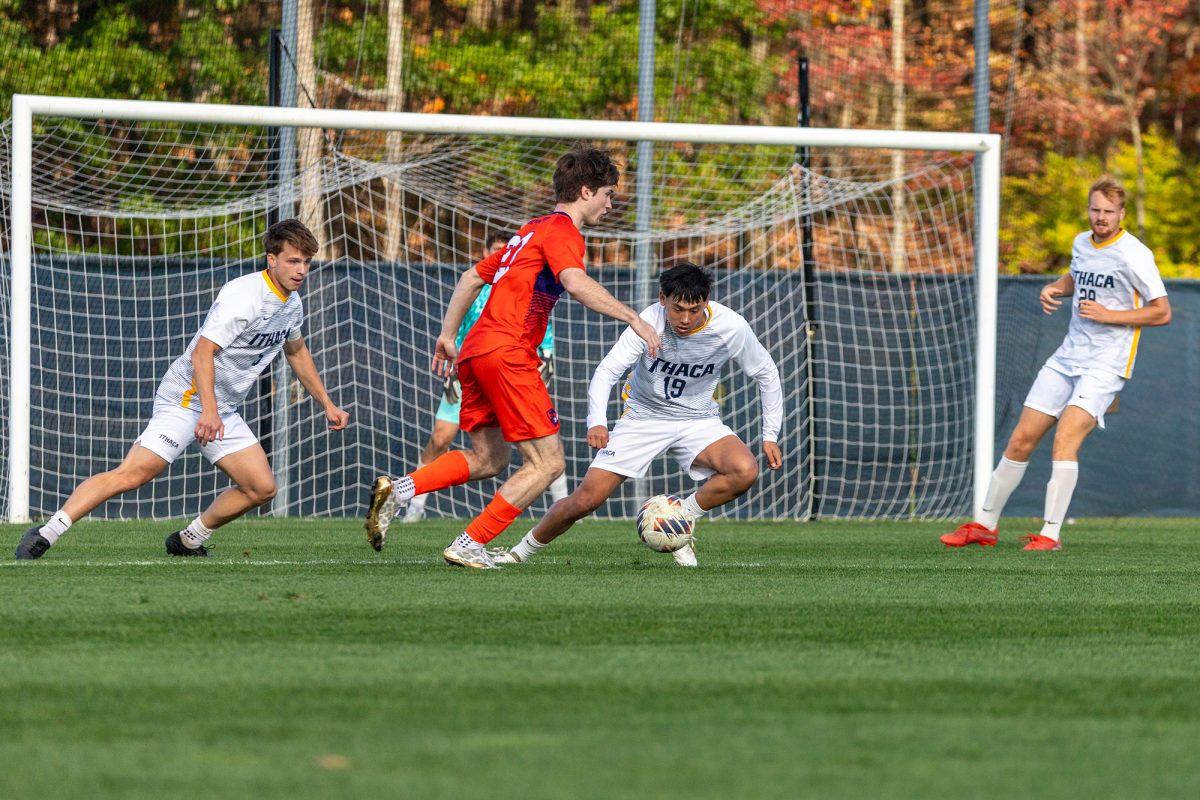Two months ago, the men’s and women’s swimming and diving teams made a midseason coaching change, handing over the reins of both diving teams to former SUNY Brockport diving coach Erin Harner.
The decision has paid off thus far as interim coach Harner has rejuvenated her divers and has her teams performing at the peak of their abilities, as evidenced by the teams’ near-perfect records as they gear up for the homestretch of the season.
Contributing Writer Andrew Sullivan sat down with Harner to discuss her career as a coach, her passion for nutrition and her future at the college.
Andrew Sullivan: What has been your overall impression during your first season as the new diving coach for the Bombers?
Erin Harner: I’m really impressed with how hard [the divers] work. They are such a hardworking group of kids, and they do exactly what they’re asked. Often that leads to dives that they didn’t realize they were good at. Sometimes I push them more than they can push themselves, and they’re willing to let me go there.
AS: Have you always wanted to coach?
EH: Absolutely. I’ve been coaching gymnastics since I was 14. I was a gymnast since I was 2. I love to coach, and I’ve been out of it for a couple of years, and it’s really great to be back. … [Coaching] is very goal driven. I love to see the athletes meet their goals and sometimes exceed their goals for themselves and just help them push themselves to be better. Not just in the pool, but also in the classroom and in every part of their life.
AS: Prior to coaching at Ithaca, you coached at Brockport for two seasons [2009–10 and 2010–11]. How have your previous coaching opportunities prepared you for this position?
EH: That coaching experience gave me a really solid foundation. That was my first head diving coaching job, and I was forced to figure it out from the ground up. I asked a lot of my former coaches and colleagues for mentorship, and they were really supportive. … I know several coaches from my own diving experience, and I asked for help a lot during that experience to make myself a better coach, and that has been invaluable here.
AS: What do you think were the biggest challenges or obstacles when you took the coaching gig?
EH: One of the biggest challenges was coming in midseason. I started Dec. 1 and they already had several meets under their belts. So coming in midseason … I really wanted to keep their season continuous … Diving is a lot about technique, and I didn’t want to mess with their technique. I wanted them to have a smooth transition … I’ve checked in with them a lot to make sure that it has been a smooth transition, too.
AS: You’re very involved in the field of nutrition. Why are you so devoted to the subject matter?
EH: As an undergrad and grad student I was in the field of biomedical engineering. I got into that field to help people and to help people be healthy. What I realized is that doing that kind of work was so far removed from the people I wanted to help. I asked myself, “What is the number one thing I could do to help people improve their health, be better performers in sports and in life?” And that was nutrition … So I translated what I was doing to health coaching at first and I went to Colorado State University to get my master’s degree in human nutrition. It’s also been really helpful with the swimmers and divers. During our training trip we did a number of nutrition talks with the divers and just talking about how their choices they’re making as far as meals and snacks affect their performance has really shown dividends in how they perform in the pool.
AS: Have you given any thought yet to your plans after the season ends?
EH: Yeah, I would absolutely love to continue. They’ve made such great improvements in just the two months that I’ve been here. It’s so fun coming to practice every day. They work so hard and they have so much potential. It’s amazing to see them progress, and I would be really sad to miss that.














